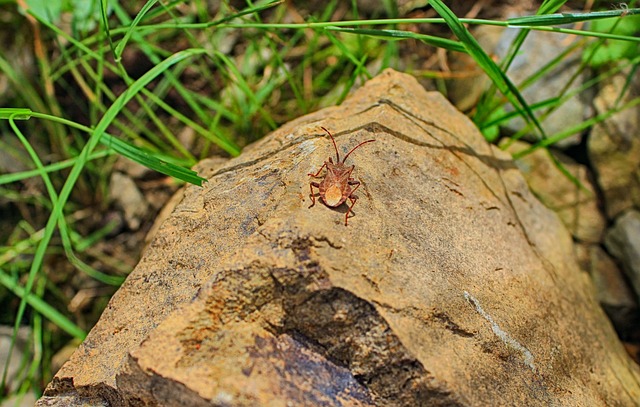Insect infestations pose a significant challenge, but proactive management is key. Understanding insect behavior and preferences for food or moisture helps prevent attractions. Regular inspections, cleanliness, and sealing entry points are primary deterrents. Professional insect control services employ tailored strategies like removing moisture sources, using repellents, and providing comprehensive treatments. Modern methods prioritize eco-friendly practices through integrated pest management (IPM), minimizing environmental impact while offering effective solutions. Homeowners and businesses increasingly opt for eco-friendly insect control services featuring natural solutions, beneficial insects, and sustainable practices. Professional companies conduct thorough inspections, employ diverse treatment methods, and schedule follow-ups to ensure complete resolution. Seasonal variations necessitate adaptable strategies, focusing on targeted treatments and preventive measures. Preventing recurrences involves identifying entry points, regular cleaning, prompt trash removal, and hiring expert insect control services for advanced treatments and tailored advice. Advanced technologies and growing demand drive the industry towards eco-friendly solutions using biological controls, plant-based repellents, and essential oils.
Insect infestations can disrupt your comfort and harm your property. Understanding common issues and implementing effective prevention strategies is key. This comprehensive guide explores various insect control methods, from traditional to modern techniques, including eco-friendly options. We delve into professional pest control services, seasonal considerations, and tips for homeowners. Additionally, discover emerging technologies revolutionizing insect management. Learn how to take control and stay ahead of unwanted visitors with these valuable insights into robust insect control services.
Understanding Common Insect Infestations
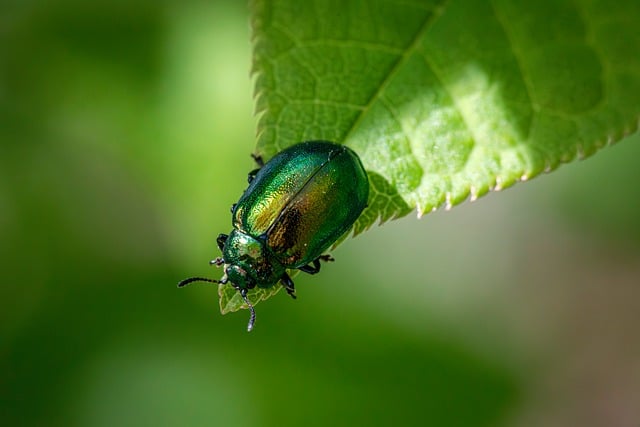
Insect infestations are a common problem that many homeowners and businesses face. Understanding these issues is the first step towards effective insect control services. Certain insects, such as ants, termites, mosquitoes, and rodents, tend to congregate in areas offering food, water, and shelter. Identifying these attractants is crucial in preventing and managing infestations. For instance, ants are drawn to sweet substances and sticky residues, while termites feed on wooden structures and plant debris.
Regular inspections and maintaining a clean environment can deter insects significantly. Insect control services often involve identifying the specific insect species, understanding their behavior, and employing tailored strategies to eliminate them. This may include sealing entry points, removing sources of moisture, using insecticides or repellents, and in severe cases, professional pest control treatments to eradicate infestations effectively.
Traditional vs Modern Insect Control Methods
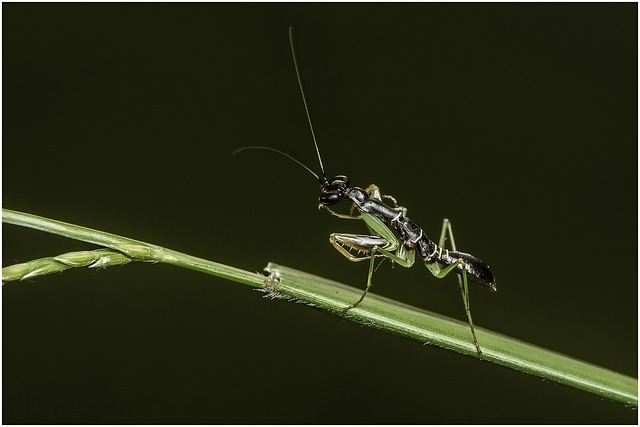
In the realm of insect prevention and control, there has been a significant evolution from traditional to modern methods. Traditional insect control services often relied on chemical pesticides, which could have detrimental effects on both the environment and non-target organisms. These chemicals may linger in the air, water sources, and soil, potentially causing long-term damage.
Modern insect control methods, on the other hand, embrace a more holistic approach, prioritizing safety and environmental sustainability. Instead of chemical pesticides, modern services employ integrated pest management (IPM) strategies that include biological controls, habitat manipulation, and targeted applications of minimal toxic chemicals. This shift not only reduces ecological impact but also fosters a healthier balance between pests and their natural predators, ultimately providing more effective and lasting insect control solutions.
Eco-Friendly Insect Prevention Strategies
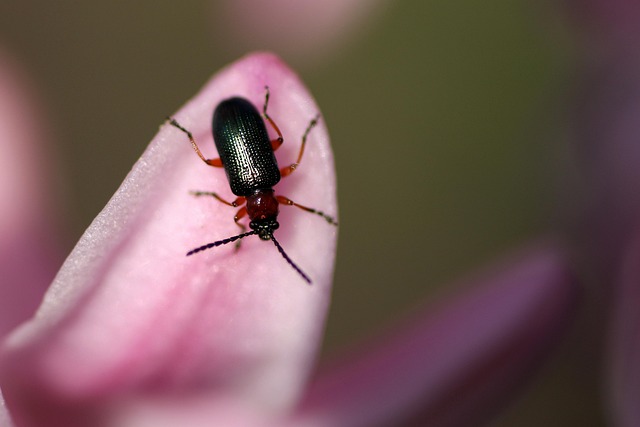
In today’s world, where environmental consciousness is on the rise, many homeowners and businesses are seeking eco-friendly insect prevention strategies. Traditional pest control methods often rely on toxic chemicals that can be harmful to both humans and the ecosystem. However, there are numerous natural and sustainable solutions available for effective insect management. One of the key approaches involves creating an inhospitable environment for insects by maintaining good hygiene and sanitation practices. This includes regular cleaning, sealing entry points, and properly storing food items to reduce attractants.
Planting specific herbs and flowers known for their insect-repelling properties is another clever strategy. Lemon balm, lavender, and citronella are popular choices that can act as natural barriers against common pests. Additionally, introducing beneficial insects like ladybugs and lacewings into your surroundings can help control populations of harmful ones. These eco-friendly insect prevention strategies not only promote a healthier environment but also offer long-lasting solutions for those seeking reliable insect control services without the use of harsh chemicals.
Professional Pest Control Services: What to Expect

When considering professional pest control services, it’s important to understand what to expect. These specialized companies offer a range of comprehensive solutions tailored to address various insect infestations, from bed bugs and termites to rodents and ants. The initial step typically involves an thorough inspection to identify the scope of the problem and determine the most effective treatment methods.
During this assessment, professionals will assess the type and severity of the infestation, inspect common entry points, and discuss potential solutions with you. They may employ a variety of techniques including chemical treatments, baits, traps, or natural repellents depending on the specific insect control services needed. Regular follow-up visits are usually scheduled to ensure the issue is fully resolved and prevent future infestations.
Seasonal Considerations for Insect Management

When considering seasonal insect management, it’s crucial to understand that different insects thrive in varying climates and environments throughout the year. For instance, spring and summer often see an influx of common pests like mosquitoes, ants, and butterflies, while autumn and winter introduce new challenges with rodents and stinging insects like wasps and bees. Effective insect control services must account for these seasonal shifts to maintain a pest-free environment consistently.
Regular inspections during these periods are essential to identifying potential issues early. Professional pest control specialists can provide tailored strategies that include targeted treatments, preventive measures, and seasonal traps to mitigate the specific risks posed by each season’s insects. By addressing these considerations proactively, homeowners and businesses alike can ensure a comfortable living or working space throughout all 12 months.
Homeowner's Guide to Preventing Insect Return
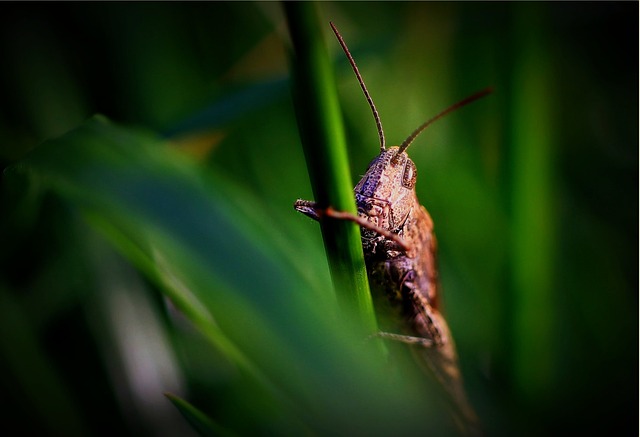
Preventing insects from returning to your home is a multi-step process that requires consistent effort and the right tools, making it crucial to understand what works best for each type of insect. For homeowners, the first step is identifying where insects are entering and sealing these entry points with caulk or mesh screens. Regular cleaning, especially in kitchens and bathrooms, helps eliminate food sources and breeding grounds. Taking out trash promptly and keeping recyclables secured also discourages insects from being drawn to your property.
Hiring professional insect control services can significantly aid in this effort. These experts utilize advanced treatments and products that are more effective at eliminating existing infestations and preventing future ones. They can also provide tailored advice based on the specific insect issues you’re facing, ensuring your home remains pest-free over time. Regular inspections are vital; professionals can identify potential entry points or signs of infestation early on, making it easier to maintain a bug-free environment with minimal disruption to your daily life.
Emerging Technologies in Insect Control
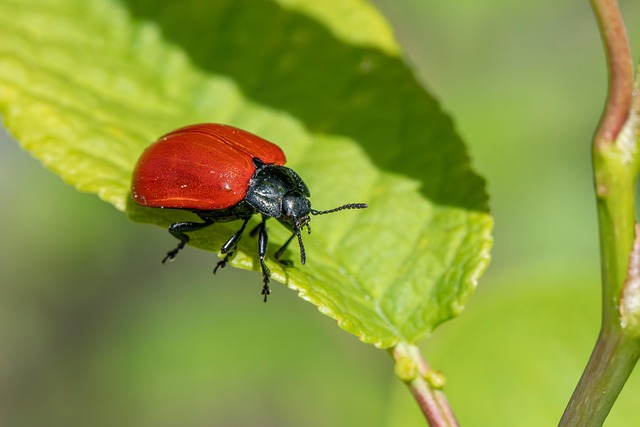
The realm of insect prevention is constantly evolving, with new technologies and methods emerging to provide effective insect control services. One notable advancement is the use of smart sensors and data analytics. These innovative tools can detect even the slightest signs of an insect invasion much earlier than traditional methods, enabling quicker response times from pest control professionals. By analyzing patterns and gathering real-time data, these systems offer a proactive approach to protection.
Additionally, eco-friendly solutions are gaining popularity as consumers become more conscious of sustainable practices. These green methods include biological controls, such as introducing natural predators or using beneficial insects, as well as plant-based repellents and essential oils. Such emerging technologies not only provide effective insect control services but also minimize environmental impact, making them attractive alternatives for both residential and commercial spaces.
